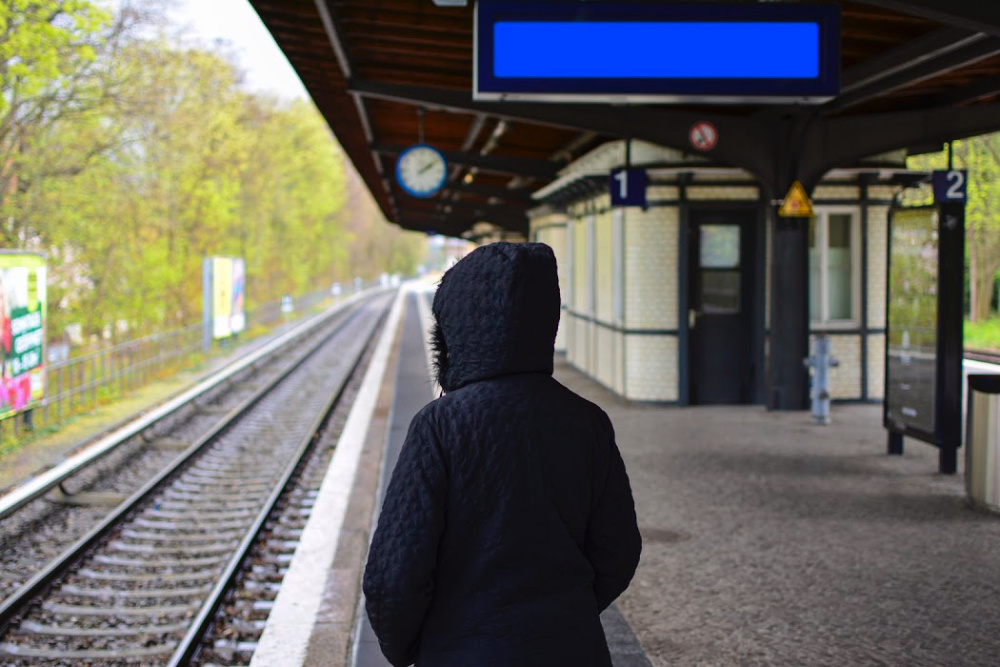
No one likes to wait. Even the most patient person becomes a bit tense standing in a long line at the grocery checkout. Most of us feel we have much better things to do.
But from our first days at school, we are expected to wait. We are instructed to ‘get in line,’ as though this is the only way to ensure civility. My partner, a retired Kindergarten teacher, taught hundreds of children how to stand in a line. Queuing up is a learned behaviour; humans are not hardwired to organize ourselves in this way.
Most of us feel we have much better things to do than wait.
A few years ago, I assigned a reading to my class about the experience of a young woman standing in line to register for her university classes in the 1980s. In a personal essay, the writer reflected on how she second-guessed her choices while waiting, and how other students in the line offered both positive and negative opinions on her course selection.
As discussion of the reading ensued, a student asked, “Why didn’t she just register on-line?”
This question was met with a few snickers, but also with furrowed brows and nods. Why, indeed?
Feeling like a relic from the Natural History Museum, I reminded the students that the article was written in the early 1980s, before people had access to the internet. “There was no ‘on-line’,” I explained. “There was just a human line. Before the internet, we waited in line for hours during frosh week – for registration, student cards, financial aid, health insurance … for everything. Sometimes there were barbeques, bands playing, t-shirt giveaways. It was fun!”
The class looked at me with pity.
And I understood. Though I stood in line to register for my courses in the 1980s, I can’t imagine doing so today. My tolerance for that particular kind of waiting has lessened, and with it my sense of possibility for what can happen in line.
Though I stood in line to register for my courses in the 1980s, I can’t imagine doing so today.
Online services, like shopping and registrations, have reduced our in-person wait time significantly. Those willing and able to pay can upgrade their tickets to skip the long lines at amusement park attractions. Self-checkout and curbside delivery offer time-saving alternatives to waiting in line at the supermarket.
Still, I sometimes choose to wait. The supermarket checkout offers several off-line pleasures. I scan the magazine display, survey other peoples’ purchases as they move along the conveyor belt, and marvel at new chewing gum flavours. Grapefruit-melon – who knew??? Most people are absorbed with their phones, but the old and very young are happy to make eye contact and exchange a few words. I talk to elderly shoppers and make faces at toddlers. The other day, a happy two-year-old chatted me up. “BAH!” she said, and proffered a few sticky raisins from a tiny red box.
I watch the clerks as they interact with customers. The majority are helpful and kind with the elderly; a few are impatient and abrupt. I wonder what it will be like to be eighty, or ninety. Will I remember my PIN? Will I be able to lift my grocery bags? Will anyone respond when I comment on the weather?
We tend to think of the line as a great democratizer. First come, first served, as they say. But in a world where the convenience of being online reduces the need for the human line, who waits?
But in a world where the convenience of being online reduces the need for the human line, who waits?
My morning walk takes me past the local food bank. Over the years, the line at its door has increased from a few people to a block in length. Not only do the most privileged among us have the choice to stand in line at the supermarket or amusement park or not, but we will likely never know what it is like to wait at the door of the foodbank.
As I walked, my mind drifted to another acutely vulnerable population who have been defined by waiting: refugees. The UN estimates that there are more than 21 million refugees worldwide, about half of them children. Their wait is often endless. The lines in which they wait for asylum frequently lack basic human comforts; overcrowding, family separation, and inhumane conditions make their wait unbearable.
The privileged have a responsibility to the vulnerable who wait. Our votes and our voices, our active participation in the political process, matter. When the current administration threatens to eliminate the U.S. refugee resettlement program, we can use our voices to speak for those waiting.
The privileged have a responsibility to the vulnerable who wait.
I wonder if, in a small way, choosing to wait can make us slow down and increase our awareness of those on the margins. Try it next time you’re in line at the DMV or the pharmacy: make eye contact and strike up a conversation instead of staring at your phone. If you are so inclined, send up a silent thought or prayer for refugees, or the homeless; and then, when you get home, call your representative and demand a more humane system (even if it means waiting on hold).
Come to think of it, if waiting encourages me to look around and pay attention, I can’t think of a better use of my time.
Like this post? Subscribe to have new posts sent to you by email the same day they are posted.



Leave a Reply